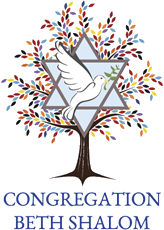This Shabbat will be our very first Sisterhood Shabbat. We certainly hope that this will be the first of a great many such events. In many congregations Sisterhood is considered the heartbeat of its congregational life. Certainly, many rabbis have shared my experience of being able to have a Sisterhood as the go-to entity that could always be counted on to do what needed to be done.
First, in a large number of communities Sisterhood established Jewish cemeteries. In doing so, they ensured that the memory of the earliest settlers were maintained. Second, along with remembering the past, Sisterhoods began and ran Talmud Torahs to ensure that Jewish learning would flourish, even out in the middle of nowhere. Having a cemetery and Talmud Torah sent a clear signal that the Jewish community was permanent and would attract businesses and, of course, a rabbi.
None of this would have happened without Sisterhood.
From a very traditional perspective, Sisterhood holds the answer to the coming of the Messianic Age – however we choose to envision it. This glorious future of Judaism is centered on the sisters Leah and Rachel and their rivalry. Without the two of them we would remain stuck in the present, unable to move on.
Chana Weisberg explains that the rift between the world of Leah and the world of Rachel not only affected their own lives, it continued as a rift in the lives of their descendants.
Joseph (Rachel’s son) had a bitter rivalry with his brothers (primarily Leah’s children) who sought to kill him, but the brothers ended up selling him into slavery in Egypt. Joseph got his revenge when famine brought him and the brothers back together.
It was Moses (descended from Leah) who liberated our people from slavery in Egypt, but it was Joshua (descended from Rachel) who was able to lead Israel into Canaan.
The kingship of Israel’s first king, Saul (a descendant of Rachel) was cut short by King David (a descendant of Leah). This led to hundreds of years of strife between Judah, the Davidic Dynasty, and Israel, the followers of Saul.Finally, according to our traditions, in the end of days the Moshiach ben Yosef (descended from Rachel) will prepare the world, changing it from what it is into what it must be, so that the Moshiach ben David (descended from Leah) can complete the task.
The message is clear. We must put aside differences, no matter how long standing, and work together. And it begins with our Sisters.
B’Shalom
Rabbi Stanley Halpern
